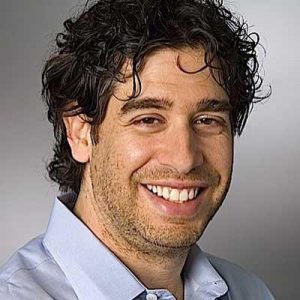William Tanuwijaya : The Founder of First Indonesian Unicorn Startup Tokopedia
There are many rags to rich stories that have been inspiring us. The story of this Indonesian entrepreneur, William Tanuwijaya, is kind of similar to those stories, expect it was not entirely based on good luck, but included lots and lots of hard work. Being born in a middle-class family, and having faced many struggles in life, Tanujania wanted to achieve something better in life, and he knew that without hard work, achieving his goals was impossible.
Early Life
Tanuwijaya was born on 11 November 1981, in Pematang Siantar, North Sumatra. He belonged to a middle-class family. He completed his school education from a local public school.
For his further education, he applied in the Universitas Bina Nusantara (Binus) Jakarta and later, got accepted for the degree course in Informatics. As he belonged to a family with an average income, he decided to work as a part-timer to support his education. He even did a 9 pm to 9 am job, at Warnet, to earn extra money. He graduated from the University as a software engineer in 2003.
Career

Being a software engineer, like any other IT graduate, Tanuwijaya also wanted to work with big companies like Google. But since there was no Google branch in Jakarta, he started off his career as a software developer with a medium scale software company in Jakarta. He worked in the same profile with companies like TelkomSigma and Sqiva Sistem.
Gained much experience as a software developer, he shifted his interest in video games development and started working with Bolehnet. Later, in 2006, he joined Indocom Mediatama as the IT and Business Development Manager.
Founding Tokopedia
With an experience of over four years, Tanuwijaya gained enough confidence to start a new business for himself. In 2007, he started working on Tokopedia and called up his friend Leontinus Alpha Edison to work on the same, who later, became the co-founder of the company. The concept behind the startup was to create a platform, where Indonesian buyers and sellers could connect for free.
The basic plan to build this eCommerce platform was ready, but there were no investors who could help the startup to be launched immediately. At the time there were no IT-specific investors in Jakarta. So Tanuwijaya started pitching his plan in front of local investors. At the same time, his father was diagnosed with Cancer, so his plan of launching the platform in 2007, got delayed coming next two years, as the sole responsibility of his family had come on to his shoulders.
The first person Tanuwijaya approached for the funding was his boss from his previous company. His boss liked the idea and helped him to approach more people. Since Tanuwijaya did not belong to a business family, many of the people doubted his ability to handle such a big idea.
It took him two years to raise the required funding to start his business, and finally, on February 6, 2009, he launched Tokopedia. Tokopedia received its initial seed funding worth IDR 2.5 billion from PT Indonusa Dwitama. In the following three years, the company was able to get funding from global venture capitals like East Ventures, CyberAgent Ventures, NetPrice, and SoftBank Ventures Korea, etc.
In 2014, Tokopedia became the first technology company to receive a US$100 million investment from Sequoia Capital and SoftBank, in Southeast Asia.
Tokopedia is Indonesia’s first company that has grown too fast. In 2015, the company reported having more than 4.9 million active product listings, and in 2018, it recorded over 80 million monthly active users and over 4 million merchants registered on the platform.
The company also received a USD $1.1 Billion in funding from Alibaba Group in 2017. In the same year, the company became a Unicorn startup having a valuation above 1 billion US dollars.
Personal Life
William got married to Felicia H.W. on November 28, 2015. Currently, Tanuwijaya is heading the company as the CEO. Establishing Tokopedia as the biggest marketplace in Indonesia, he has become one of the richest people of Indonesia, having an estimated worth of 130 million US Dollars.

Yashica is a Software Engineer turned Content Writer, who loves to write on social causes and expertise in writing technical stuff. She loves to watch movies and explore new places. She believes that you need to live once before you die. So experimenting with her life and career choices, she is trying to live her life to the fullest.





